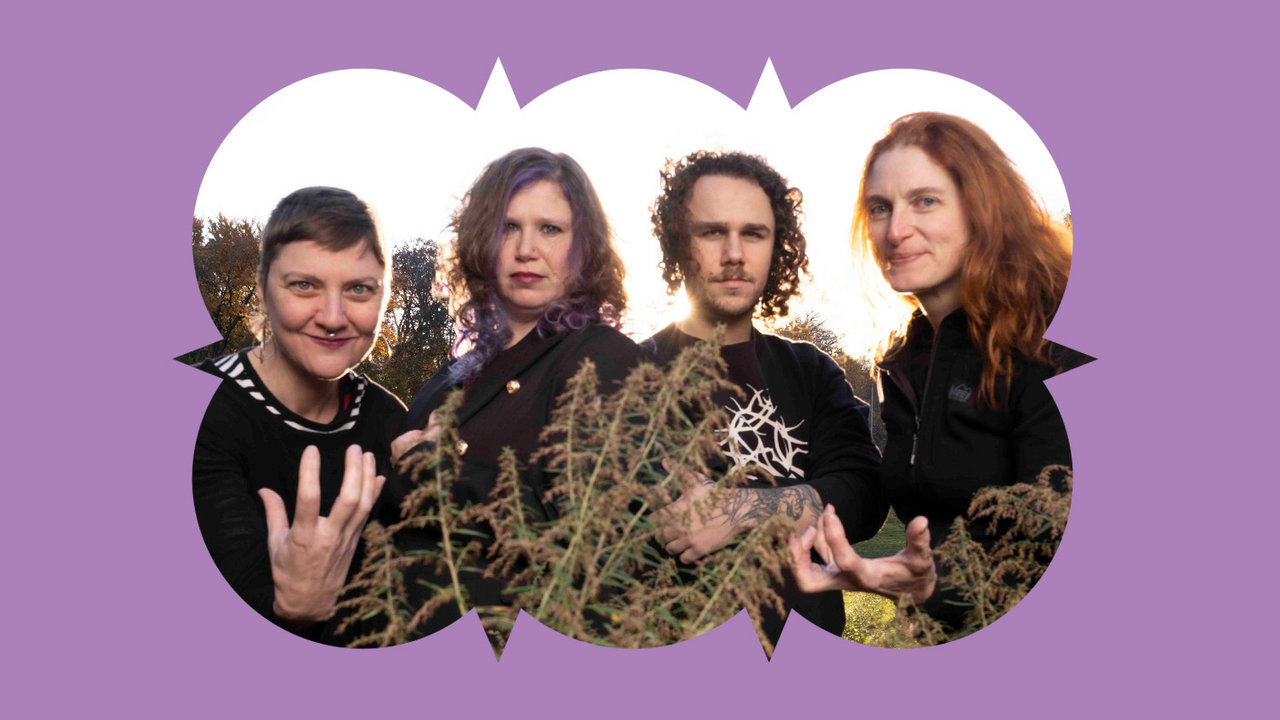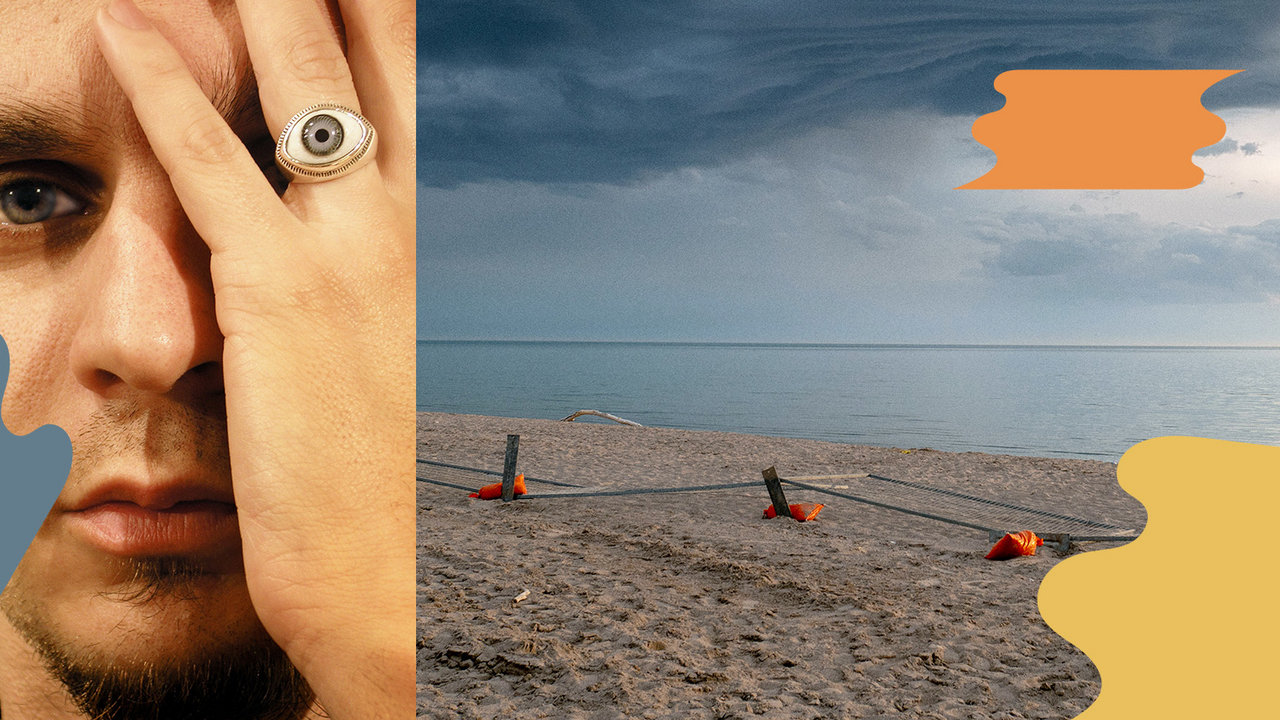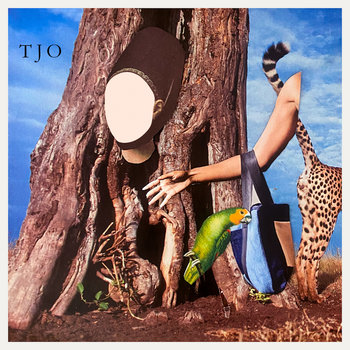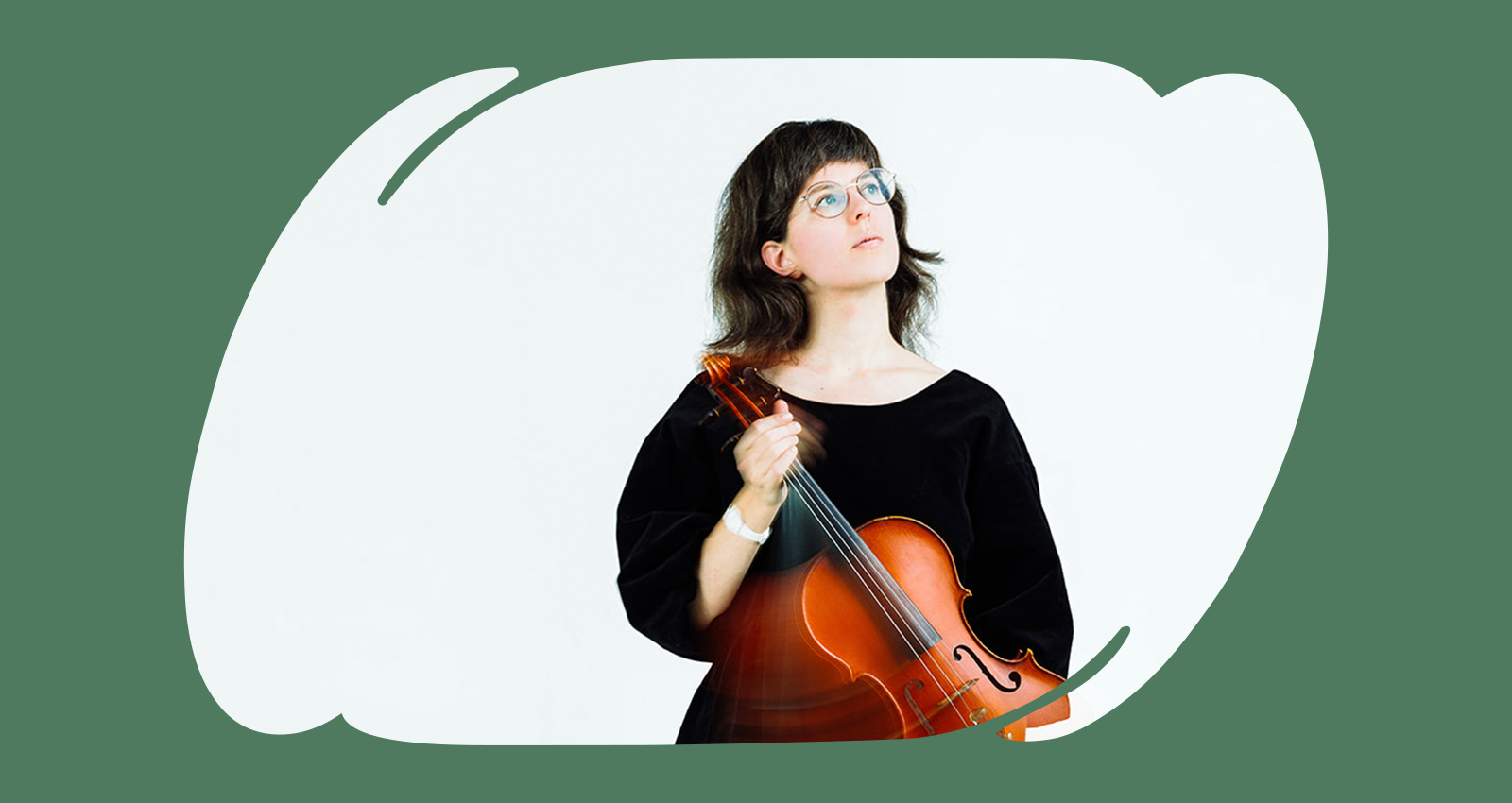
The taxonomy of contemporary classical music—new music, contemporary music, whatever you want to call it—is a thorny issue. But every month, we’ll take a look at some of the best composer-driven music to surface here on Bandcamp, that which makes room for electronic experimentation, improvisation, and powerful takes on old classics.
Jürg Frey
Les signes passagers


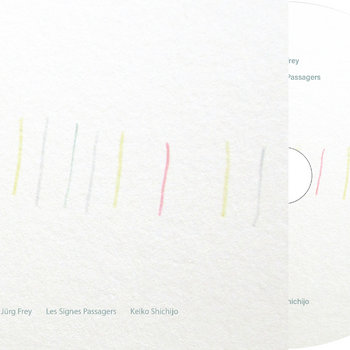


Compact Disc (CD)



This austere collection of solo works for pianoforte by Switzerland’s Jürg Frey is one of three compelling recent titles from the label elsewhere on which forward-looking composers write for centuries-old instruments (Michael Pisaro-Liu’s A room outdoors features viola da gamba, while Ivan Vukosavljević wrote for a variety of medieval church organs in the Netherlands on Slow Roads). Frey was commissioned by the Amsterdam-based pianist Keiko Shichijo, who has a history of working with the instrument, an early version of the conventional piano. The process pleased the composer, who has said, “The whole construction of the instrument is so subtle, and every movement, the slightest change in registers and density of chords immediately opens a variety of colors, new perspectives, and emotions.” Indeed, there’s an exquisite fragility to the music, articulated with remarkable grace and tenderness by Shichijo, that gives the album a rarefied quality. It’s as if the sounds could turn to dust after reaching your ears. The seven pieces leave plenty of space for the gentle overtones to dissolve, stringing together the most spartan yet lyric melodic shapes. Simple phrases repeat, changing their meaning with each voicing, moving on to some related pattern or, as on a piece like “Très calme,” pivoting to something comparatively more jarring. But ultimately this is music for contemplation, like single Satie phrases extended luxuriously over time.
Linda Catlin Smith & Thin Edge New Music Collective
Dark Flower
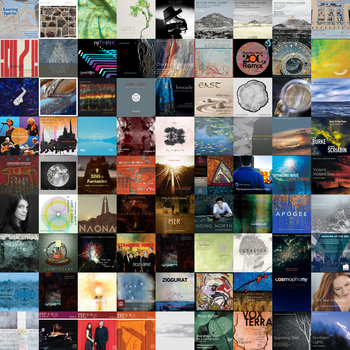



Compact Disc (CD)


Years before composer Linda Catlin Smith began to gain an international profile through a series of superb recordings for the label Another Timbre, Toronto’s Thin Edge New Music Collective—co-founded by the pianist Cheryl Duvall and violinist Ilana Waniuk—was already devoted to her music. In fact, its first ever performance in 2011 featured an account of her piece “With Their Shadows Long,” which remains part of the ensemble’s repertoire. As with so much of Smith’s rapturous music, it’s steeped in dark harmonies, with a beautifully sorrowful melodic thrust that inches along slowly, hanging in the air, reveling in a dusky ambience. While a number of works on this impressive portrait album have been previously recorded, including the otherworldly opener “Wanderer”—an airy dirge suffused with attractive stillness and a distant percussion-fueled tension—the album also provides the first recordings of four compositions, including the titular centerpiece, which the ensemble commissioned for a 2020 performance. On that 26-minute shape-shifting marvel, violin, viola, and cello levitate over, blossom through, and strain against sparse piano parts—stark single note patterns, patient arpeggios, and insistent chording. All of Smith’s music is rooted in classical tradition, but she routinely applies discordant harmonies, molasses-slow pacing, and powerful patches of silence, which makes it all feel totally contemporary. The composer was involved in the recording project, leaving the impression that these are exemplary readings of her work. Sure sounds that way.
Maja S.K. Ratkje & Nordic Affect
RÖKKUR
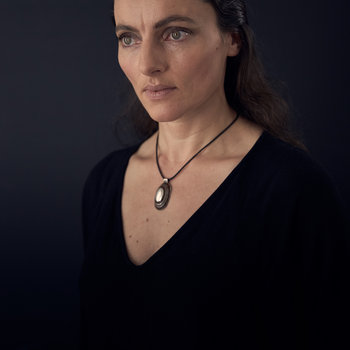


Vinyl LP

The hierarchy of composer and performer has undergone a lot of thankful destruction in recent decades, and this collaboration between Norwegian composer and vocalist Maja S.K. Ratkje and the Icelandic ensemble Nordic Affect—which play new music on early music instruments—proves how valuable that erosion can be. Ratkje wrote or co-wrote all of the material, composing some new works for the project while repurposing and heavily revising older pieces. Multiple pieces draw upon the poetry of George Herbert. But the arrangements were all created with the input of Nordic Affect. From track to track, the musicians embrace different methods, such as the improvisatory exploration of texture and extended technique on the opening salvo “Into the Dark,” which begins to coalesce around a fractured vocal melody during its final 90 seconds, presaging pieces using the Herbert text. “Love Took My Hand” embraces fully-formed Baroque splendor, even if it’s threaded with corroded electronics. At times Ratkje veers into improvised vocal experimentation, as on the enchanting “Den sprættende bevægelse min fot gjør hver gang pulsen slår,” a piece originally from her 2019 solo album Sult, here pushed along by the cycling harpsichord of Guðrún Óskarsdóttir. “Love III” gathers up those anticipatory fragments in earlier tracks and transforms them into a gorgeous tune where her full-throated lyrical gifts fully bloom. There’s no disjunction between the most experimental and the most polished performances here, emerging as they all do from a single core. Together the performers make plain that these compositions are living things, always ripe for additional transformation.
Eric Wubbels
if and only if






Sheet Music, Compact Disc (CD)




Composer and pianist Eric Wubbels has worked with violinist Josh Modney and cellist Mariel Roberts for many years, both in Wet Ink Ensemble and in this stand-alone trio. The trust and familiarity they’ve developed over time seem essential to the success of this remarkable piece of music, written for them between 2018–2019. The eight-movement composition flows seamlessly through different tuning systems, enlisting the musicians to move from strength to strength. The whole thing opens in “endings,” with Wubbels playing an oblique chord in unison with dense, sustained double stops from the strings deployed using just intonation. It fosters a remarkably viscous, kaleidoscopic harmony that feels simultaneously oppressive and shimmery. Wubbels drops in thunderous lower register tones here and there, but the focus is on Modney and Roberts as they cycle through a variety of lush chords, eventually thinning out the sound as it progresses. Thus begins an utterly absorbing hour-long journey through shifting harmonies, unison patterns, and collisions between just intonation tuning for the strings and the piano’s equal temperament. But Wubbels, as usual, is interested in more than just harmonic explorations, playing with scale, arrangements, and dynamics. The second movement, “tombeau,” flips the script and moves the piano to focal point, with the strings grinding against the glassy arpeggios and flickering runs in concentrated, viscous swells. Each additional movement changes perspective and tonality, offering a dazzling variety of shapes and colors fueled by the collective enterprise these musicians have devoted themselves to, shepherded along by the pianist’s incisive writing.
Martin Arnold
Flax



Compact Disc (CD)

A genuine figurehead of the exciting new music emanating from Canada over the last several decades, composer Martin Arnold sadly remains lesser known than counterparts like Cassandra Miller and Linda Catlin Smith—both present elsewhere in this month’s column. He retains a keen feel for tradition while also bifurcating, reordering, and pulling it apart. He adds an unexpected wrinkle in Flax, an epic solo piano work originally commissioned by British pianist Philip Thomas but performed here by Kerry Yong, who recently gave the world premiere performance at the Huddersfield Contemporary Music Festival. Arnold happens to be a big jazz lover, and his lines here are inspired by the improvisation in jazz of the 1950s and ‘60s, as they unfold over wobbly harmonic settings. The music never flirts with swing rhythms, but the tension between the fluid yet halting melodies and the chords ringing out underneath provides a strangely beguiling pleasure. About halfway through, the tonalities stop wiggling, solidifying into a far more restricted but no less riveting terrain. The reduced range makes the music feel more minimal, a sensation that seems heightened, in part, due to the more controlled palette. The two parts brilliantly present an effective study in contrast that enhances each section over repeated listens. I’ve also never heard anything remotely close to this duration from Arnold, who says, “The longer a composition is, the less change should occur.”
Chris Fisher-Lochhead
Wake Up the Dead
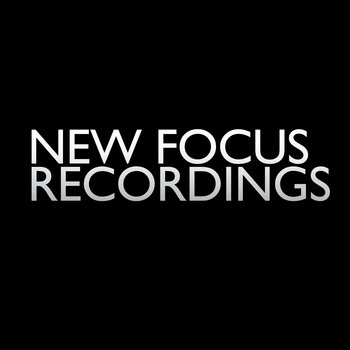


Vinyl LP

This bracing portrait album from Vermont composer Chris Fisher-Lochwood underlines the roots he made in the Chicago new music community—every ensemble here has ties to the city—while he was studying at Northwestern University in the 2010s. The commitment of the various performers reveals a genuine two-way partnership. As the album title makes plain, this music functions as a strong corrective to complacency, not just in our hearing but to our presence in life itself. Straight out of the gate, on the deliciously gnarly opening piece “stutter-step the concept,” a multi-pronged, contrapuntal feast of jagged stops and starts, striated timbres, and fleeting harmonies is elucidated with impressive precision and energy by Ensemble Dal Niente, the group he wrote it for in 2016. The chamber piece wends and winds its way through constantly morphing phrases, shifting sonic perspective like a Calder mobile. Quince Contemporary Vocal Ensemble articulate the probing contours of the brief “Précis,” balancing irregular exploration with a gorgeously lush sonic palette. JACK Quartet, which includes former Chicago violinist Austin Wulliman, imparts typical brio into two string quartet pieces, whether in the woozy swerves and tactile textures of “Funkionslust” or the wildly rejiggered, retrofitted transcriptions of five different recordings of “Backwater Blues. No less thrilling is the solo bassoon piece “grandFather,” a searing, wildly careening piece interpreted with breathless virtuosity and gritty intensity by Ben Roidl-Ward.
Lea Bertucci
Of Shadow and Substance
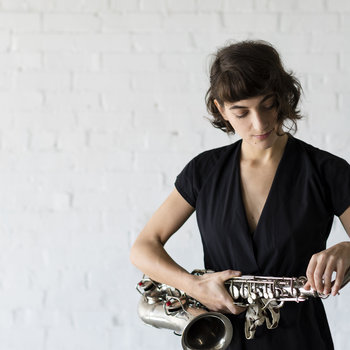



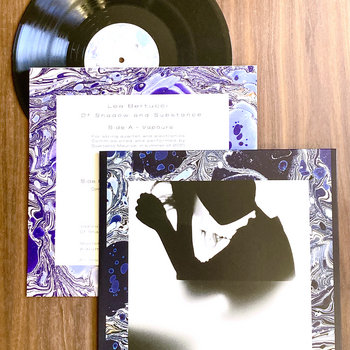



Compact Disc (CD), Vinyl LP, Sheet Music




Lea Bertucci takes a bold step forward as a composer, writing for other ensembles rather than just herself with this new recording. “Vapours,” the first piece here, was written for the Italian ensemble Quartetto Maurice. The ensemble was asked to visualize the titular phenomenon as they performed, and the result is a beautifully unstable mass of fluctuating string lines that cumulatively generate a sparkling sonic fabric It’s designed as an ensemble work, with no single instrumental voice commanding the spotlight. And, as the title suggests, it evinces a kind of liminal state—not merely between gas and liquid, but also mental states. Bertucci chose the word in part because it was once used to label hysteria in women, a widespread and dehumanizing diagnosis that enabled men to simply dismiss any sort of argument, resistance, or difference voiced by females as a disease. The piece accrues density and motion in arc-like fashion, but the real pleasure is basking within the astute interplay each musician delivers. The title piece was a commission by the Philadelphia music presenter Ars Nova—performed by a top-flight group of improvisers with bassist Henry Fraser, cellist Lester St. Louis, percussionist Matt Evans, and harpist Lucia Stravros. Bertucci designed it as “a meditation on time travel,” and while it contains a vaguely similar kind of striated texture as the first piece, this one churns darkly, muting the light of the string quartet. The piece was recorded live, as Bertucci took small chunks of the output, electronically warping and extending them, which further bulks up the sound and heightens its brooding vibe until a translucent denouement brings it gently back to solid ground.
Cassandra Milller, Laurence Crane, and Linda Catlin Smith
Folks’ Music


Under the artistic direction of Eamonn Quinn, the Louth Contemporary Music Society in Dublin, Ireland has become one of the most visionary and thoughtful funders of new music. They present pre-existing works, too, including a surprisingly great interpretation of Terry Riley’s In C played on traditional Irish folk instruments. But its reputation is being made with these commissions, which have also included singular music from Jürg Frey and Michael Pisaro-Liu. This new album features astonishing work by Canadian composers Linda Catlin Smith and Cassandra Miller (the latter lives in London) and British composer Laurence Crane—all musicians who maintain a strong connection to classical tradition while deftly playing with its form. Crane’s Second String Quartet, “String Quartet No. 2,” is beautifully performed by the Esposito Quartet. It’s a slow-moving piece strewn with stark voicings and melodic shapes, taken at the most leisurely pace, pulled together beautifully, deconstructing timeless string quartet cadences and building something totally modern from them. That’s what the other two works do, too, allowing us to hear two living composers authoritatively producing sublime choral music, performed here by the Chamber Choir of Island, and conducted by Paul Hillier. In performance, the members of the choir are scattered around the audience in six clusters when they sing Miller’s “The City, Full of People,” but even without that separation the melodies she created, singing along to Tomas Tallis’s “Lamentations of Jeremiah” as made the piece, create a shimmering sonic fabric that feels simultaneously ancient and psychedelic, and her structural conceits keep the movement deliciously hard to predict. Smith’s “Folio” feels more modern with its gracefully changing landscape, deftly mirroring a weird detachment appropriate to a piece using the poetry of Emily Dickinson.
Ensemble Klang with Agata Zubel
Laurence Osborn: Essential Relaxing Classical Hits




Compact Disc (CD)


I only came across this record days before my deadline, so I fully admit that I’m still grappling with the inordinately dense, idea-crammed music from the young British composer Laurence Osborn. It seems designed as a kind of classical-pop analog, surveying and recontextualizing a slew of classical pieces by the likes of Pachebel, Debussy, Satie, and Bach, among others. Tackled with impressive rigor by Amsterdam’s Ensemble Klang and the stunning Polish singer and composer Agata Zubel, the work is structured as a kind relentless mixtape that reflects the information overload unleashed by the internet, simultaneously flattening and scrambling our understanding of all sorts of things. That’s not to say the music is haphazard or mushy. Indeed, it’s played with clear-eyed gusto, but there are so many layers at play, so much melody ricocheting around, and so much parsing to be done that it’s hard not to feel both exhausted and exhilarated by the end. Zubel deploys her stentorian soprano with flashes of pop tunefulness and insouciance, especially at the start of the second movement, where an isolated swing-like drum part and twangy electric guitar takes things far from opera. Osbourne’s is taken from wellness videos, advertising copy, and assorted cliches, a simpatico fit for the sonic collision. I’m ready to dive in again, gradually chipping away at its fizzy magnitude.
Carrie Frey
Seagrass: Works for Solo Viola



Compact Disc (CD)

Violist Carrie Frey belongs to several adventurous New York ensembles including the Rhythm Method, Chartreuse, and Desdemona, but this stunning collection marks the first release under her own name. Musicians who don’t play violin or piano are often forced to take an activist role in commissioning new solo work for their instruments, and that’s what Frey has done with Seagrass: Works for Solo Viola, with impressive results. The album opens with the title piece, a composition Frey actually wrote for violinist and regular collaborator Adrianne Munden-Dixon—who recorded it on her terrific solo album Lung earlier this year—but in transposing it for viola, Frey remakes it in her own way, inhabiting the various consciousnesses she imagines we all have. The piece changes complexion numerous times, but it’s beautifully held together with an agile navigation that reacts to the shifts with ease and elegance. Munden-Dixon returned the favor, writing the beautifully skittering “Zastrugi” for the violist. Alec Goldfarb adapted his “No Reading/if this were ever sounded” from an ensemble version with fixed media into a solo piece using just intonation, unleashing a growingly dense and thorny zig-zags through deliciously jagged phrases and molasses-thick harmony, while Maria Kaoutzani’s “Choros” toggles between passages of dark serenity and jacked-up intensity, imagining a series of disparate rooms the violist moves through. In fact, all of the pieces—including strong works by Anthony R. Green, Buck McDaniel, and Emily Praetorius—include shifting moods and attacks, sometimes requiring Frey to carry on a polyphonic dialogue with herself. As bold as these pieces are, Frey conjures an inviting warmth that leaves her virtuosity on the margins, placing the focus on her humanity.



